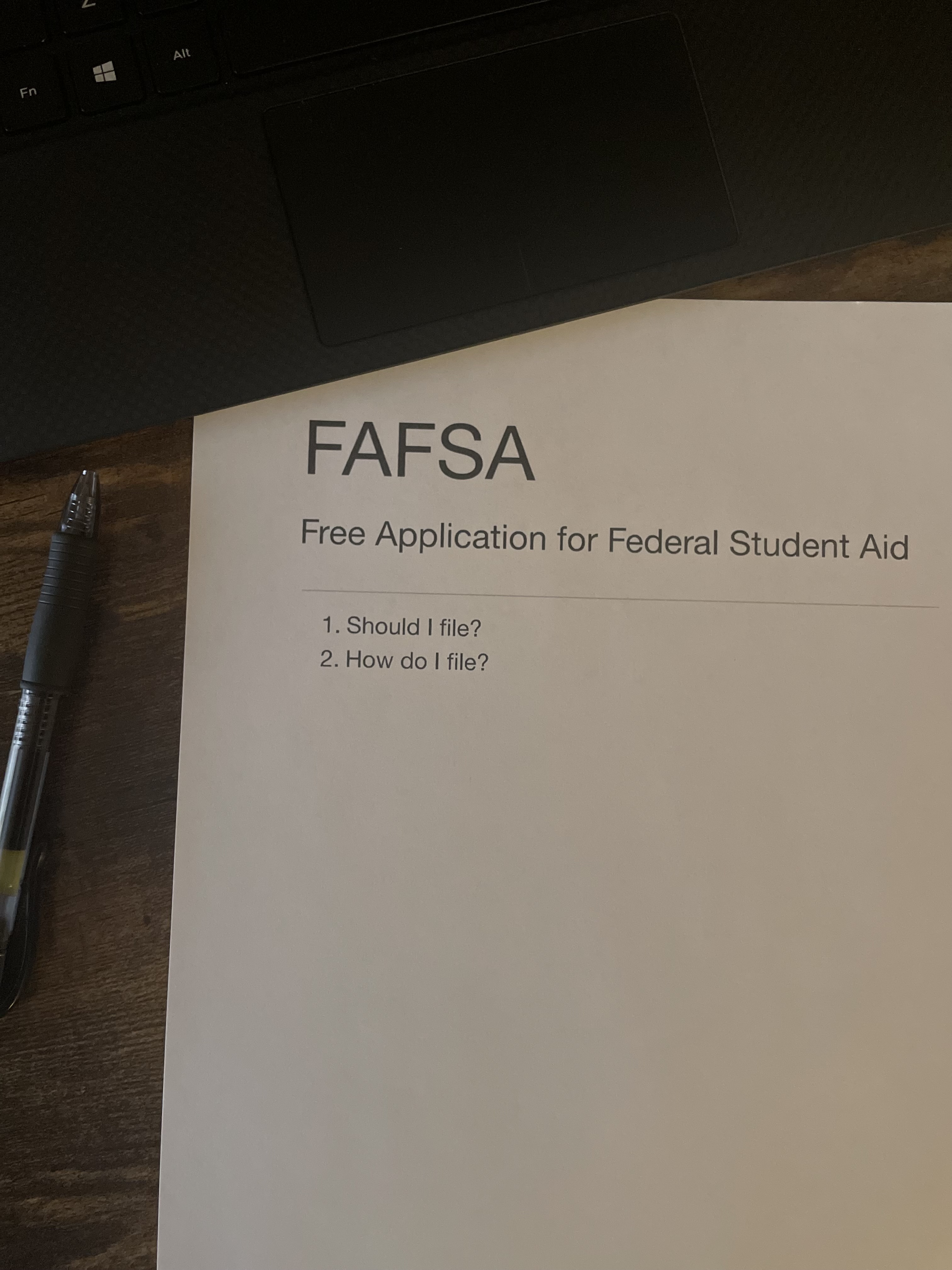Is Filing a FAFSA Worth it?

You are not crazy if you really don’t enjoy thinking about and planning for college financing and financial aid. Very few do. The one thing you are told you have to do for college planning is file the FAFSA. And it doesn’t sound like a whole lotta fun. And you’re right, it’s not. But it’s not as difficult of a process as you’re probably making it out to be. Let’s break it down.
Do I need to file a FAFSA?
2 things have to be true for you to file a FAFSA. First, you or your dependent should have intentions of enrolling at a post-secondary institution (aka college) in the current or upcoming academic year. Second, you have to be looking for financial aid. That may sound obvious, but you don’t have to complete a FAFSA if you have no intention of accepting any financial aid. Many think they may not qualify for financial aid, which as we’ll see, is probably wrong. But if you have no intention of accepting financial aid of any sort (grants, loans, or work-study options) then you shouldn’t file the FAFSA. Which leads to the next question….
Is filing the FAFSA worth it?
I used to be very skeptical about the value of filing the FAFSA, primarily because I didn’t qualify for any grants, I didn’t want to take out any student loans, and the work-study options didn’t pay particularly well. But even if you find yourself in a similar state of mind as I had, there are 3 powerful reasons it is worth it to file the FAFSA: First, you never know what you might qualify for. Even if you’re certain you won’t qualify for a great or a loan, your college may have unexpected benefits you could be eligible for based on your FAFSA, and it’d be foolish to miss out on those simply because you didn’t file…. Because secondly, it’s not that difficult to file the FAFSA. It’s probably easier than you think it would be. Of course, it’s not as fun as most other things in life, but it’s just not that bad. Most of your personal information, including income information, can be pulled in through the IRS’s Data Retrieval Tool (DRT). Between that and having your financial account statements handy, you’ll be good to go. And finally, and probably most powerfully since August 2022, the reason you should file for the FAFSA is because you need to seriously consider taking out a federal student loan for college. Why? Because with federal student loan forgiveness up to $10,000, a student who didn’t take student loans effectively lost a grant from the federal government. (I think federal student loan forgiveness is a dangerous policy on a macro level, but I fully endorse taking advantage of every government subsidy offered to us that doesn’t compromise personal values or integrity.) So in summary, YES, filing the FAFSA is worth it.
How do I file the FAFSA?
Like I mentioned, the “how” of filing the FAFSA is probably less daunting than you anticipate. There are many steps to the process, which can be intimidating. However, just take one step at a time, and you’ll find none to be overwhelming. And if you get stuck, you hopefully have a financial professional in your life that can help clear any hurdle you run into. Ask them for help. There is no question too small for a worthy financial advisor. So what’s your first step? Start the process. I would do it online so I don’t have to mess with paper forms. You can do so [at this website](https://studentaid.gov/h/apply-for-aid/fafsa). As far as timing, you are able to file as early as October 1st before the next academic year. So on October 1, 2022, you could file the FAFSA for the 2023-2024 school year. And here’s the pro tip: always file as soon as you’re able. If you haven’t filed for the 2023-2024 academic year yet, do so ASAP. (You are actually still able to file for the 2022-2023 school year, and if you were eligible to file and haven’t yet, do so ASAP!). You have a 21 month window to file the FAFSA for any particular academic year, but do not wait. Many universities and states dole out benefits within 3-6 months after the FAFSA window opens. So don’t risk missing out on benefits by procrastinating. Even if you know a lot of things may be changing with your financial picture and income in the near future, you can always file updates or corrections. File as soon as you’re able, and get it over with! There are so many aspects to making an investment in education for yourself or the ones you love. I love talking about those decisions with clients. But having clarity that you need to complete the FAFSA as close to October 1st as possible and believing it’s not as painful as you might think will get you a long way!